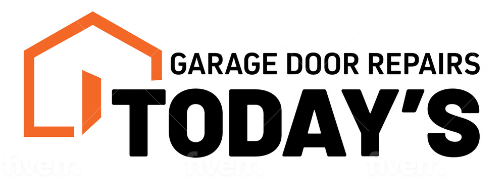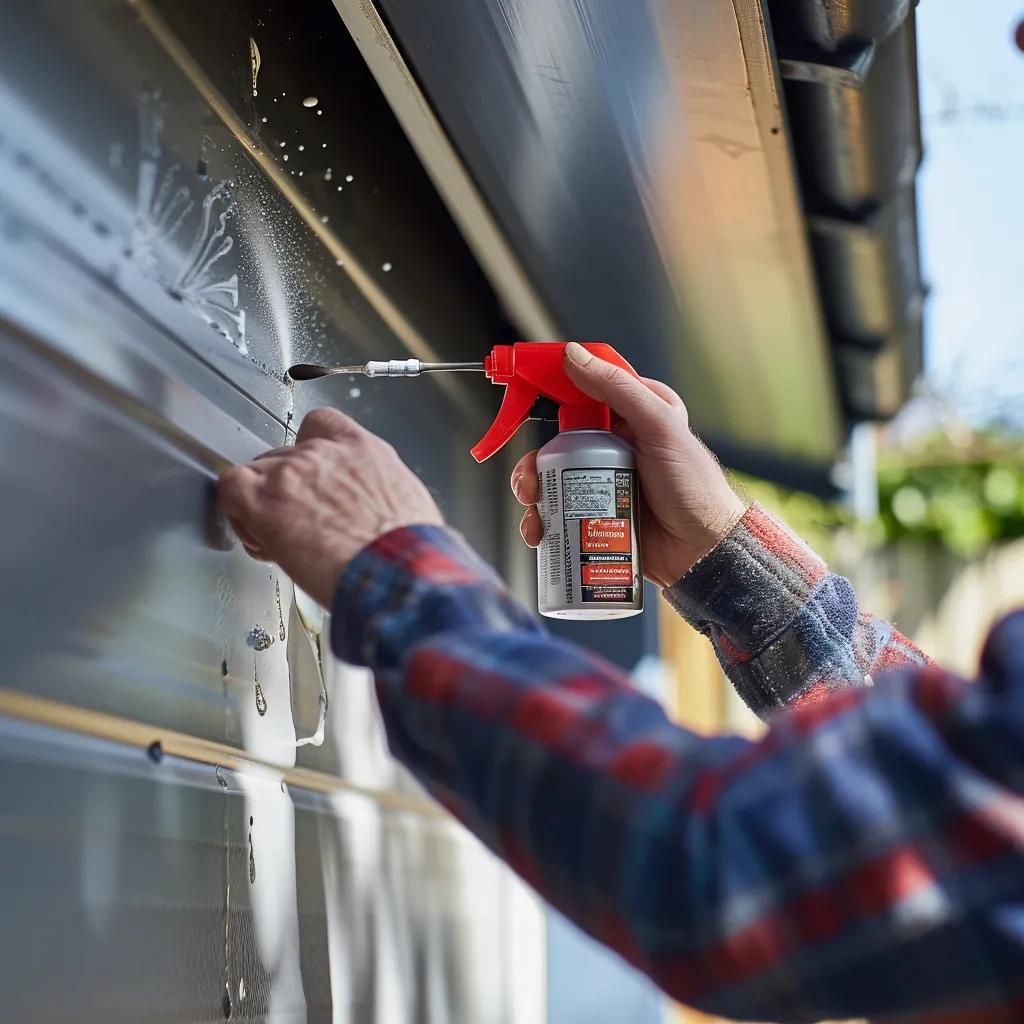Essential Garage Door Lubrication Tips for Longevity
Essential Garage Door Lubrication Tips for Smooth, Quiet OperationGarage Door Lubrication Tips for Longevity: Professional Guidance for Smooth, Quiet, and Durable Operation
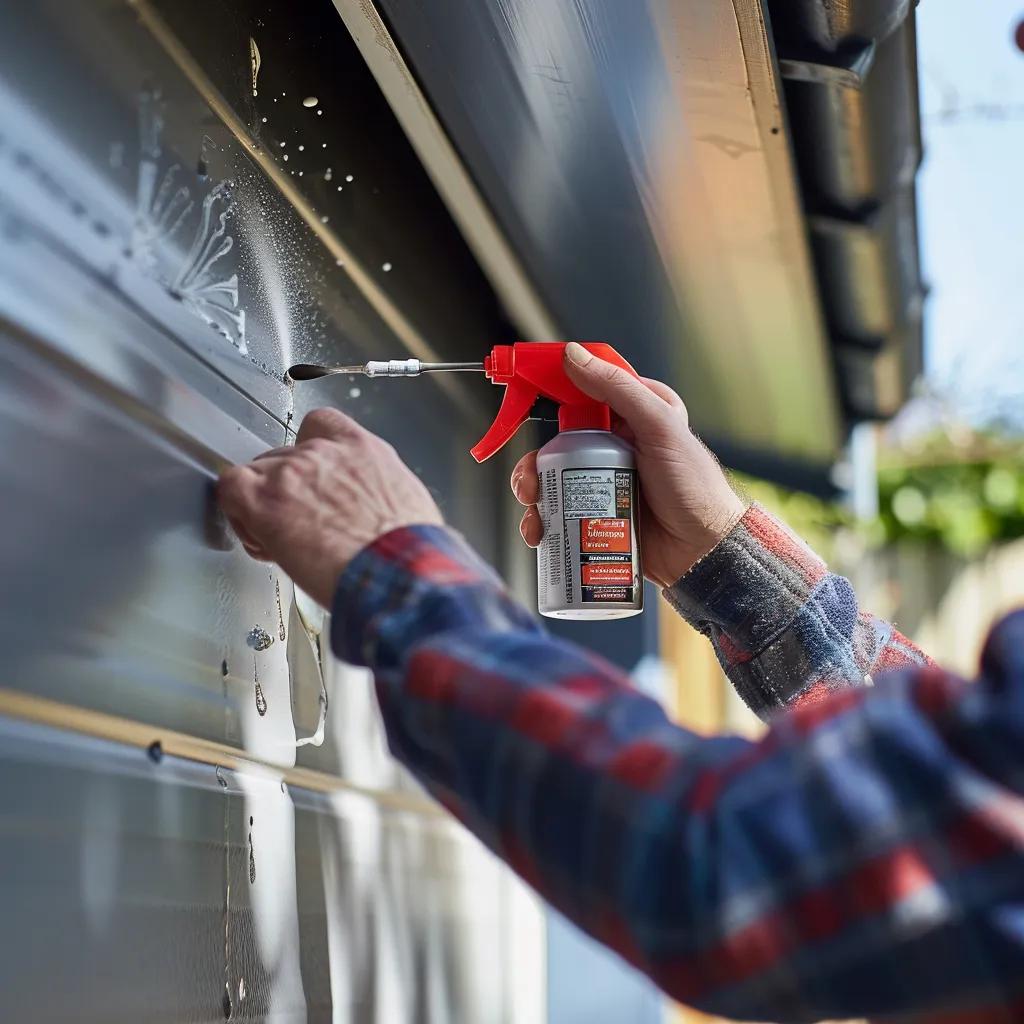
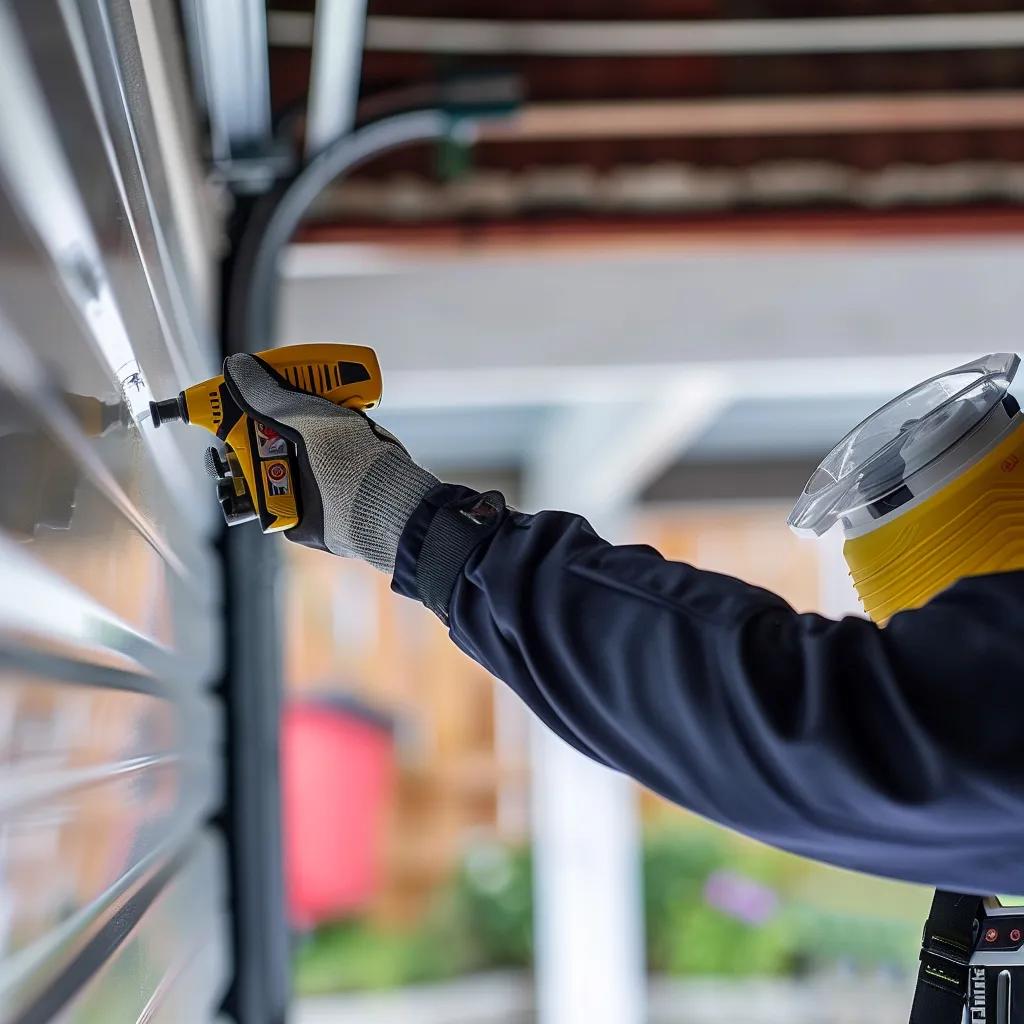
Ever wonder what your secret weapon is against those frustrating garage door failures? It’s proper lubrication! Believe it or not, it can prevent up to 70% of common issues. Say goodbye to grinding friction, stubborn corrosion, and those annoying squeaks that disrupt your peace. In this comprehensive guide, we’re sharing the professional secrets to garage door lubrication. These aren’t just quick fixes; they’re methods that restore smooth, silent operation and dramatically extend the life of your entire system by years.
We’ll dive deep into why lubrication is absolutely non-negotiable, compare the best silicone and lithium-based products, walk you through a simple, step-by-step maintenance routine, recommend ideal service intervals, troubleshoot common noises, show you how lubrication fits into a complete maintenance plan, and even address the specialized needs of commercial doors. By the time you finish reading, you’ll be equipped with the knowledge to keep your garage door running like new—and you’ll know exactly when to reach out to todaysgaragedoorrepairservice.com for a free estimate or immediate, expert service.
Why Is Lubrication Crucial for Your Garage Door‘s Longevity?
Imagine lubrication as an invisible, yet incredibly powerful, shield for your garage door. It’s the precise application of a protective film between moving surfaces that drastically cuts down friction, stops rust in its tracks, and silences unwanted noise. By eliminating harsh metal-on-metal contact and sealing out damaging moisture, professional garage door lubrication ensures every single cycle is smooth, quiet, and guards your components against premature wear. For example, a simple spray of silicone lubricant on torsion springs can actually halve wear rates and prevent corrosion in humid climates, setting the stage for quieter operation and an extended lifespan you’ll truly appreciate.
How Does Lubrication Reduce Friction and Wear on Garage Door Parts?
Lubrication works by creating a low-friction barrier between parts, which significantly minimizes heat and mechanical stress. What does this mean for you? Less wear and tear, and a much smoother, more reliable operation for your door.
- GarageDoorHinge → frictionReduction → a protective film that prevents metal rubbing, ensuring seamless pivots.
- GarageDoorRoller → bearingProtection → smoother rolling and fewer bearing failures, keeping your door gliding effortlessly.
- GarageDoorOpenerRail → wearPrevention → consistent travel without binding, for reliable daily use.
By cutting resistance at every pivot and roller, lubrication preserves hinge pins and bearing races. This ensures your door glides evenly, preventing the kind of misalignment that often leads to costly, unexpected repairs and unnecessary headaches.
The Science of Friction Reduction: Keeping Things Smooth
At its core, lubrication is all about reducing friction between moving parts. This critical process minimizes heat and mechanical stress—the primary culprits behind premature wear and tear on your garage door components. The result? Silky-smooth operation and a significantly extended lifespan for your entire system, giving you peace of mind.
In What Ways Does Lubrication Prevent Rust and Corrosion?
A high-quality lubricant does far more than just reduce friction; it creates a powerful, water-repellent shield that actively blocks moisture and airborne contaminants from attacking your metal components.
- WhiteLithiumGrease → moistureBarrier → provides long-term corrosion resistance, especially vital for springs.
- SiliconeLubricant → waterRepellent → offers superior rust prevention on hinges and tracks, even in damp conditions.
This chemical protection stops oxidation before it even has a chance to start. This means fewer seized springs and jammed rollers, particularly in damp or coastal environments where corrosion is a constant threat to your door’s health.
Corrosion Prevention and Lubrication: Your Door’s Best Defense
A quality lubricant acts as an invisible, yet incredibly effective, protective barrier. It actively prevents moisture and harmful contaminants from damaging metal surfaces, which is absolutely crucial for preventing rust and corrosion. This protective action is especially vital in humid or coastal environments, directly extending the life and reliability of your garage door components and saving you money in the long run.
How Does Proper Lubrication Ensure Quiet Garage Door Operation?
Tired of those jarring creaks, squeaks, and grinding sounds every time your garage door opens or closes? Lubrication is your answer. By absorbing vibration and eliminating metal-on-metal contact, it brings a welcome silence to your garage door‘s operation, transforming a noisy nuisance into a smooth, quiet experience.
- LubricantFilm → vibrationDamping → significantly reduces noise with every cycle, for a peaceful home.
- RollerBearing → frictionReduction → prevents grinding sounds in metal-on-metal rollers, ensuring quiet movement.
When your hinges and rollers operate without direct metal contact, your door opens and closes with a whisper. This offers a noticeable boost in comfort and enhances the perceived quality of your home, making daily life just a little bit smoother.
How Does Lubrication Extend the Lifespan of Garage Door Components?
Lubrication isn’t just about smooth operation today; it’s about protecting your significant investment for tomorrow. It dramatically reduces cyclical stress on springs, hinges, and rollers, allowing these parts to complete far more open/close cycles without fatigue or premature failure.
- GarageDoorSpring → stressReduction → actively prevents coil fatigue and premature breakage, saving you money on costly replacements.
- GarageDoorRoller → bearingProtection → reduces early bearing failure, ensuring long-term reliability and consistent performance.
Did you know? Regularly serviced systems can actually exceed manufacturer cycle ratings by a remarkable 20 percent! This translates to potentially saving homeowners hundreds of dollars in replacement costs over a decade. That’s real, tangible value and peace of mind!
What Are the Best Lubricants for Garage Doors and How to Choose Them?
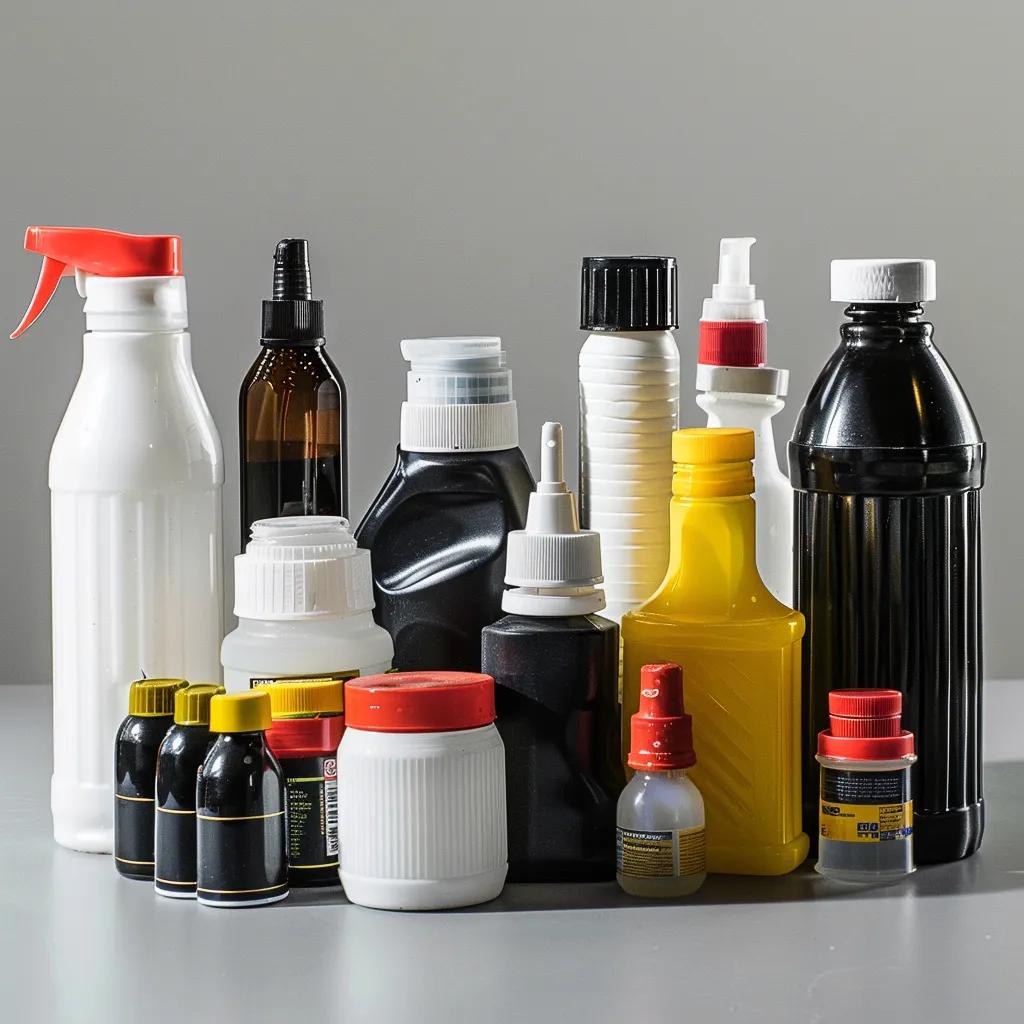
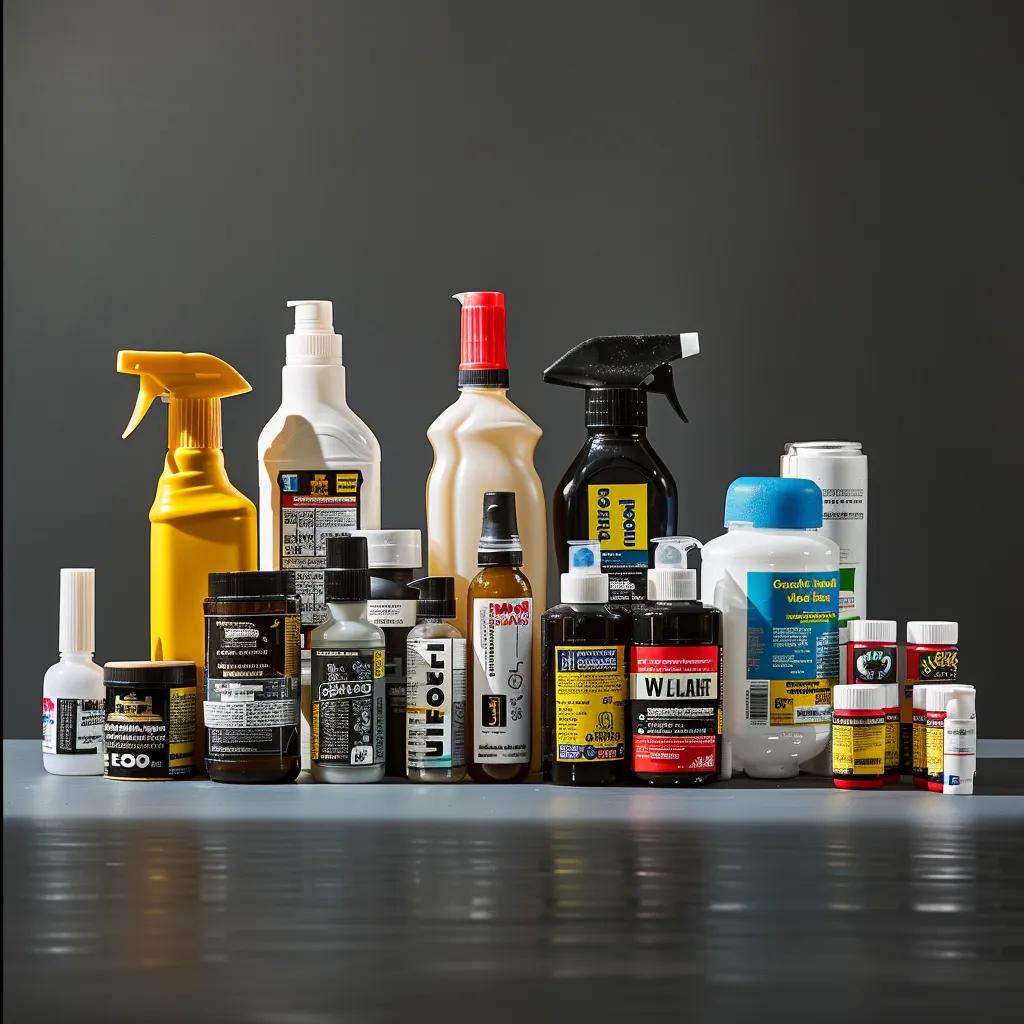
Choosing the right product is absolutely key to ensuring optimal protection for each component’s material, temperature range, and daily usage. Below, we compare the three most common options, highlighting their recommended uses and performance so you can make an informed choice that truly benefits your garage door.
Silicone’s low surface tension and moisture-repelling chemistry make it the perfect choice for rollers and hinges, ensuring they glide smoothly without attracting grime. Meanwhile, white lithium grease’s thick film clings tenaciously to springs and chains under high load, providing long-lasting protection. A crucial word of caution: oil-based sprays like WD-40 act as degreasers and actually promote dirt buildup, so they should be avoided entirely for garage door lubrication. Using them will do more harm than good!
What Are the Benefits of Silicone-Based Garage Door Lubricants?
Silicone lubricant delivers a clean, non-sticky film that actively repels moisture and stands strong against extreme temperature fluctuations. It’s fantastic for preventing rust on hinges and seals without leaving behind any gummy residue, making it absolutely perfect for rollers and weatherstripping where a clean, smooth glide is essential.
Why Use White Lithium Grease for Heavy-Duty Garage Door Parts?
White lithium grease forms an incredibly durable, high-pressure film that can withstand the constant torque on torsion springs and opener chains. Its superior adhesion prevents fling-off, even under centrifugal force, ensuring long-lasting friction reduction on those critical metal-to-metal surfaces that bear the brunt of your door’s operation.
Why Should WD-40 and Oil-Based Products Be Avoided for Garage Door Lubrication?
Here’s the crucial point, and it’s one we can’t stress enough: WD-40 primarily acts as a solvent and degreaser. This means it strips away existing protective oils and, worse, actively attracts dust and grit. The result? It actually accelerates wear instead of preventing it, making it completely unsuitable for long-term garage door maintenance. For the health and longevity of your door, please avoid it!
How Do Silicone and Lithium Grease Compare: Application, Durability, and Suitability?
In summary, silicone excels in areas exposed to moisture and frequent movement, providing a clean, protective barrier. Lithium grease, on the other hand, truly outperforms under sustained pressure and high loads, offering robust, long-lasting lubrication. Knowing the difference ensures you apply the right product for maximum benefit and optimal performance of your garage door.
How to Lubricate Your Garage Door: Step-by-Step Professional Guide

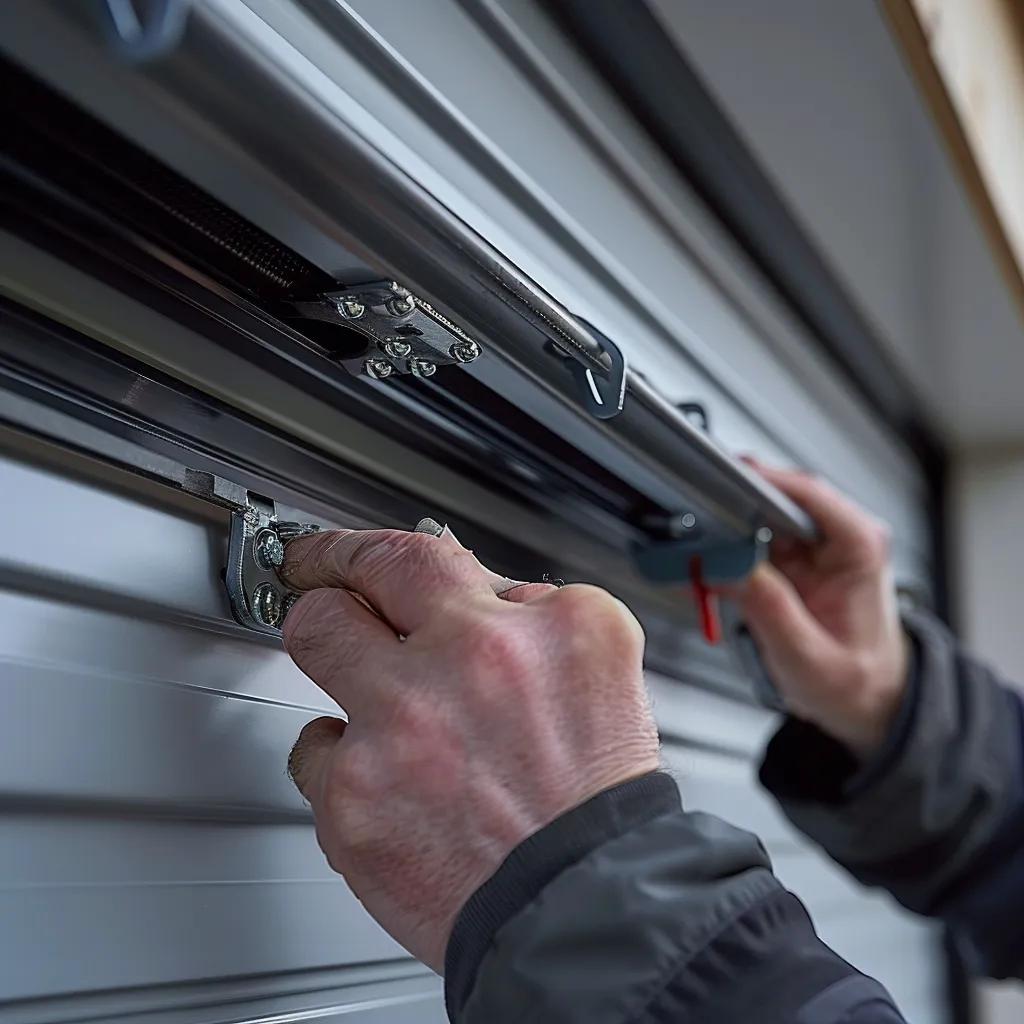
Before you apply any lubricant, it’s absolutely essential to perform these crucial preparation steps. This ensures optimal performance and, most importantly, your safety throughout the process.
- Always inspect your door thoroughly for any signs of damage, misalignment, or worn parts. Catching issues early can save you a lot of hassle.
- **Crucial Safety Step:** Disconnect your electric opener to prevent any accidental activation while you’re working. Your safety is our top priority.
- Gather your supplies: you’ll need silicone spray, white lithium grease, clean rags, and safety glasses. Being prepared makes the job much easier.
With your system prepped and ready, proceed through each lubrication point in order to guarantee full coverage and maximum benefit for your garage door. Follow these steps for a smooth, quiet, and long-lasting operation:
- Tighten Loose Hardware Grab a socket wrench and snug up any loose bolts and hinges. This simple step prevents rattling and ensures parts move smoothly on their lubricated pivots, setting the foundation for quiet operation.
- Clean Garage DoorTracks Wipe down your tracks with a damp rag to remove any dirt and debris. Remember, avoid lubricating tracks directly—clean surfaces allow hinges and rollers to glide effortlessly, as they should, without attracting more grime.
- Lubricate Hingesfor Smooth Panel Movement Spray silicone lubricant directly onto each hinge pin and apply a thin layer around the pivot points. Properly lubricated hinges dramatically reduce friction and noise, making a noticeable difference in your door’s performance.
- Lubricate Rollers: Which RollersNeed Lubrication? Only apply silicone spray to metal-bearing rollers. It’s important to avoid lubricating nylon or plastic rollers, as this can cause them to swell or attract unwanted debris, leading to more problems down the line.
- Lubricate Garage DoorSprings: Torsion and Extension Types Generously coat both torsion and extension springs with a thin, even film of white lithium grease. This is vital for reducing cycle fatigue and preventing rust, significantly extending their life and preventing costly spring breaks.
- Lubricate Bearing Plates, Opener Rail, and Lock Mechanism Place a drop of white lithium grease on the bearing plates and along the top opener rail. Don’t forget to lightly oil the lock cylinder to ensure the mechanism turns freely and smoothly, enhancing overall security and ease of use.
- Post-Lubrication Tests Ensure Proper Garage DoorOperation Once you’re done, reconnect the opener and cycle the door five times. Listen carefully for smooth, quiet operation and watch for consistent travel without any sticking or hesitation. This confirms your hard work paid off!
Following this systematic approach prevents you from missing any crucial spots and ensures every moving component receives the appropriate protection it needs. For specialized tasks like spring replacement or roller refurbishment, remember that professional help is always available. Consider our expert garage door spring repair or garage door roller replacement services—we’re here to help when you need us.
How Often Should You Lubricate Your Garage Door for Optimal Performance?
Routine lubrication isn’t just a suggestion; it’s a vital practice that maintains peak performance and significantly prolongs component life. It works by restoring those essential protective films *before* wear even begins, saving you from future headaches and expenses.
What Is the General Lubrication Frequency Recommendation for Homeowners?
For most residential doors, a full lubrication service every six months is ideal. This interval strikes the perfect balance between ease of care and reliable, consistent protection against friction and corrosion, giving you lasting peace of mind and a smoothly operating door.
How Do Climate and Usage Affect Lubrication Frequency?
If you live in a humid or coastal region, moisture accelerates corrosion, which means you might need lubrication every three to four months to combat the elements. Doors with high daily cycle counts—think busy households with frequent ins and outs—also benefit greatly from more frequent servicing to maintain that quiet, reliable operation you depend on day in and day out.
When Is More Frequent Lubrication Necessary for Commercial Garage Doors?
Commercial overhead doors are true workhorses, often cycling dozens, even hundreds, of times per day under heavy loads. In these demanding settings, lubrication every quarter (every three months) is absolutely essential to sustain nonstop operation and prevent costly, disruptive downtime that can impact your business.
What Are Common Garage Door Noises and How Can Lubrication Fix Them?
Those annoying garage door noises aren’t just irritating; they’re often clear signals that your door needs attention. The good news? Targeted lubrication can eliminate the most frequent sounds by addressing their root causes directly, bringing back the quiet you deserve.
What Does Squeaking or Grinding Noise Indicate About Lubrication Needs?
Squeaks are a clear sign of dry hinges or rollers, while grinding often points to metal-on-metal contact within roller bearings. The great news? A quick spray of silicone on bearings and white lithium grease on hinges can stop these noises immediately, restoring quiet operation and making your garage door a pleasure to use again.
How Does Rattling Relate to Loose Hardware and Lubrication?
Rattles typically stem from vibrating bolts or misaligned tracks. The solution is twofold: tightening hardware during your pre-lubrication checklist secures parts, and a light application of white lithium grease on hinge pins can effectively dampen any remaining vibrations, bringing welcome silence and stability to your door.
When Should You Call a Professional for Persistent Noisy Garage Doors?
If those noises persist even after you’ve diligently lubricated and adjusted the hardware, it’s a strong indication that underlying issues like bent tracks or worn springs may be present. Don’t wait for a breakdown! Contact todaysgaragedoorrepairservice.com to schedule a free estimate and let our experts diagnose and fix the problem before it becomes a major headache and a costly emergency.
How Does Garage Door Lubrication Fit Into Comprehensive Maintenance for Longevity?
Lubrication is more than just a quick fix; it’s a fundamental pillar of a complete maintenance plan. It works in harmony with other essential tasks to keep every part of your garage door in peak condition, actively preventing emergency repairs and ensuring long-term reliability and safety for your home.
What Other Maintenance Tasks Complement Lubrication for Garage Door Health?
A truly holistic service includes essential tasks like safety sensor alignment, thorough cable tension checks, careful panel inspection for dents or warping, and precise opener balance testing. These tasks work in concert with lubrication to ensure your garage door operates reliably, safely, and smoothly every single day, giving you complete peace of mind.
How Do Professional Garage Door Maintenance Plans Include Lubrication Services?
Our preventive maintenance packages are designed for your ultimate peace of mind. They seamlessly combine biannual lubrication with full system inspections, meticulous hardware tightening, and crucial safety adjustments—all delivered by our certified technicians. We document every step and proactively recommend parts replacement when needed, keeping you informed and your door in top shape, year after year.
Why Is Professional Lubrication Important for Complex Garage Door Components?
Complex elements like torsion springs and high-lift tracks aren’t just any parts; they require precise application and torque calibration to prevent injury and costly equipment damage. Our expert technicians use specialized tools and the right lubricants to guarantee both peak performance and unwavering safety for your entire system, ensuring everything operates as it should.
Ready to enhance your door’s performance and extend its life? Enroll in our comprehensive garage door maintenance plans, which include expert lubrication and detailed inspection services tailored to your needs.
What Are the Specific Lubrication Needs for Commercial Garage Doors?
Commercial doors are built differently. They feature heavier-duty components and face significantly higher cycle demands, which means they call for tailored lubrication strategies to keep them running efficiently and reliably, minimizing costly downtime for your business.
How Do Commercial Garage Door Components Differ in Lubrication Requirements?
Heavy-duty rollers, high-capacity torsion springs, and industrial opener chains demand thicker films of white lithium grease to withstand greater torque and constant, frequent cycling. Additionally, sealed bearings may require less frequent lubrication but, when serviced, demand high-grade synthetic oils for optimal performance and longevity.
What Lubricants Are Recommended for Commercial Garage Door Maintenance?
For commercial applications, we recommend using premium-grade white lithium grease on springs and chains, and industrial silicone sprays with PTFE for rollers and hinges. These specialized formulations are designed to resist washout from power washing and prevent buildup, even in the most high-usage environments, ensuring maximum durability.
How Does Frequent Use Impact Commercial Garage Door Lubrication Frequency?
Doors operating in busy retail or warehouse settings often cycle hundreds of times daily. For these workhorses, lubrication at least every three months is crucial to prevent costly downtime and significantly extend component longevity. In extreme duty cycles, monthly spot lubrication may even be warranted to maintain peak, uninterrupted performance and keep your business running smoothly.
A regular, proactive lubrication schedule for your commercial systems is your best defense against emergency repairs and the key to supporting uninterrupted business operations. It’s a smart investment that truly pays off by preventing costly disruptions.
Regular, expert lubrication combined with strategic inspections is the undeniable key to achieving smooth, quiet, and durable garage door performance. By prioritizing professional-grade silicone and white lithium grease, adhering to a six-month timetable (or more frequent service in demanding environments), and integrating lubrication into a complete maintenance plan, you’ll keep your door operating at its absolute best—year after year. When complex repairs or persistent issues arise, don’t hesitate. Please schedule a free estimate with todaysgaragedoorrepairservice.com to safeguard your garage door investment and ensure safe, reliable operation for years to come. We’re here to help!

